A Heartbreaking Reality About Heart Attacks
There was a time when heart attacks were associated with aging — something people worried about after their 50s. Fast forward to today, and we are watching healthy, vibrant people in their 20s, 30s, and early 40s collapse unexpectedly due to cardiac arrest. It’s not rare anymore — it’s disturbingly common.
From celebrities to gym trainers to tech professionals, sudden cardiac deaths have become a frighteningly regular headline. Despite medical advancements, our hearts are failing younger and faster than ever before.
Let’s explore why this is happening and what it means for the younger generation.
Shocking Real-Life Cases: The List Is Getting Longer
When we see public figures — people who seemingly have access to the best resources — fall victim to heart attacks, it shakes us. But for every celebrity case, there are hundreds of similar tragedies involving common individuals that never make national headlines.
Shefali Jariwala – Age 40 (2025)
Just recently in June 2025, the popular Kaanta Laga fame actress Shefali Jariwala reportedly collapsed at her home in Mumbai. Although the official medical report is awaited, early reports suggest it may have been cardiac-related. Known for her fit physique and active lifestyle, Shefali’s sudden collapse left fans stunned. Her case has reignited concerns about the hidden vulnerabilities of even the healthiest-looking individuals.
Sidharth Shukla – Age 40 (2021)
TV actor and Bigg Boss 13 winner Sidharth Shukla died due to a massive heart attack in 2021. He complained of uneasiness, went to bed, and never woke up. The fitness enthusiast’s death shocked millions, especially given his muscular build and healthy routine.
Puneeth Rajkumar – Age 46 (2021)
Kannada superstar Puneeth Rajkumar suffered a fatal heart attack post-gym session. A man known for his disciplined health routine, his death came as a massive shock to fans across South India.
Raju Srivastava – Age 58 (2022)
While working out in a hotel gym in Delhi, the beloved comedian collapsed on a treadmill. Despite receiving immediate medical attention, he passed away weeks later after being in a coma — a reminder that even the fittest public figures can have hidden conditions.
It’s not just celebrities who are falling victim to this silent crisis — ordinary, everyday individuals are collapsing without warning, leaving families shattered. In April 2024, Krishna Kumar, a 34-year-old wedding photographer from Kerala, fainted in the middle of a shoot and never regained consciousness — it was a heart attack. A few months prior, Ankit Jain, a 28-year-old IT engineer from Noida, collapsed at his desk shortly after lunch. Despite being rushed to the hospital, he was declared dead on arrival. Even joyous occasions have turned into tragedies — in one shocking incident in Uttar Pradesh, a 32-year-old groom died mid-dance during his own baraat, leaving guests in stunned silence. In another heartbreaking case from Gujarat, a 26-year-old man passed away during a morning jog, a routine he never missed. These are not isolated stories anymore. They are becoming terrifyingly common, reminding us that the danger is real, and age is no longer a protective factor when it comes to heart health.
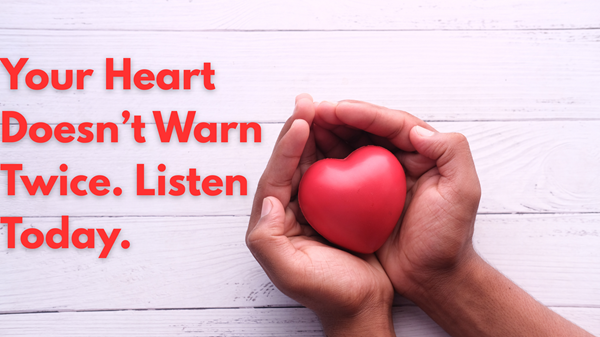
But Why Are So Many Heart Attacks Happening?
It’s not just one thing — it’s a deadly mix of lifestyle, stress, misinformation, and negligence. Here are some major contributors to this growing crisis:
1. Chronic Stress and Mental Pressure
The modern young adult is overworked and under-rested. Career expectations, job instability, personal comparisons (thanks to social media), and FOMO-driven lifestyles are keeping stress levels permanently high. Cortisol, the stress hormone, silently damages blood vessels and accelerates heart disease.
2. Sedentary but Sudden Intensity
Most young people are sitting for over 10 hours a day. Then, to “fix” that, they hit the gym for 90 minutes and push their limits. The body is unprepared for this shock, and the heart pays the price.
3. Fast Food and Ultra-Processed Meals
Burgers, pizzas, chips, and sugar-laden coffees have replaced traditional, heart-friendly home-cooked meals. High sodium, trans fats, and sugar lead to high cholesterol and clogged arteries — even in people with normal body weight.
4. Smoking, Vaping & Drinking Culture
From social smoking to vape addiction, young adults often normalize these habits without understanding the risks. Even weekend binge drinking increases heart attack risk significantly.
5. Unregulated Supplements and Steroid Use
Many gym-goers, especially in urban India, take steroids or unregulated protein supplements. These can cause abnormal heart rhythms, blood pressure spikes, and thickening of heart muscles — all of which can trigger a cardiac arrest.
6. Genetics and Family History
If heart disease runs in your family, your risk multiplies — especially when coupled with an unhealthy lifestyle. Many young victims had no idea they were at risk because they never got tested.
7. Post-COVID Complications
COVID-19 left behind more than we can see. Even mild infections led to heart inflammation (myocarditis), weakened heart muscles, and increased clotting risk. For many, cardiac complications appeared months after recovery.
The Warning Signs Are Subtle — Don’t Ignore Them
Too many young people brush off symptoms, assuming heart issues are for “old people.” Here’s what you should never ignore:
- Mild or persistent chest pain
- Unexplained shortness of breath
- Sudden sweating or palpitations
- Dizziness, nausea, or fainting
- Pain in the left shoulder, jaw, or neck
- Feeling unusually tired or weak
If you experience any of these symptoms — even once — seek medical help immediately. Don’t “wait it out.” Cardiac arrests often happen silently and suddenly.
What You Can Do to Protect Yourself
Get Screened Annually
Don’t wait for symptoms. Get your blood pressure, cholesterol, sugar levels, ECG, and other relevant tests done once a year after age 25.
Eat Like You Care
Your body deserves real food. Choose seasonal fruits, vegetables, home-cooked meals, and whole grains. Avoid food with ingredients you can’t pronounce.
Move Daily, Not Occasionally
A short daily walk, light yoga, or regular stretching is better than intense workouts once a week. Consistency trumps intensity.
Sleep Like It Matters
Sleep deprivation is linked directly to hypertension, obesity, and poor heart health. Target 7–8 hours of quality sleep every night.
Avoid Quick Fixes
Stay away from “miracle” gym powders or weight loss pills. If you’re taking supplements, consult a doctor or certified dietician first.
Talk About Mental Health
Your mind and body are not separate. Stress, anxiety, and depression affect your physical health more than you realize. Seek help if needed.
Final Thoughts on Heart Attacks: It’s Time to Take This Seriously
The sudden surge in heart attacks among the youth is not a coincidence. It’s a mirror held up to our lifestyle, choices, and ignorance.
Shefali Jariwala, Sidharth Shukla, Puneeth Rajkumar — these are not just names. They were reminders. Each untimely death is a message — a gut-wrenching alarm bell we can’t afford to snooze anymore.
Heart health is not just about age — it’s about awareness, responsibility, and action.
FAQs on Heart Attacks:
Q. Why are young adults getting heart attacks suddenly?
ANS: A toxic mix of stress, sedentary lifestyle, unhealthy diets, smoking, supplement abuse, and post-COVID inflammation is behind the surge.
Q. Are gym workouts causing heart attacks?
ANS: Not the workouts, but overexertion, improper guidance, and steroid/supplement abuse are contributing factors. Always train with certified professionals.
Q. Can stress alone cause heart attacks?
ANS: Yes. Chronic stress leads to hypertension and inflammation, which damage arteries and increase heart attack risk even without other factors.
Q. What is the ideal age to start heart check-ups?
ANS: Ideally by 25–30, especially if you lead a high-stress lifestyle or have a family history of heart disease.
Q. What are early signs of a heart attack in young adults?
ANS: Unexplained chest discomfort, breathlessness, fatigue, dizziness, sweating, and irregular heartbeats. Don’t ignore any of these.
Q. Does post-COVID heart inflammation increase risk?
ANS: Yes. Many young adults developed cardiac inflammation (myocarditis) after COVID-19, increasing long-term heart risks.
Final Words:
Your heart may be young, but it still needs care.
Don’t take your youth for granted. Live smart. Eat right. Move daily. Check annually. And most importantly — listen to your body before it screams for help.
Read More About Health & Lifestyle Updates on Popnewsblend.
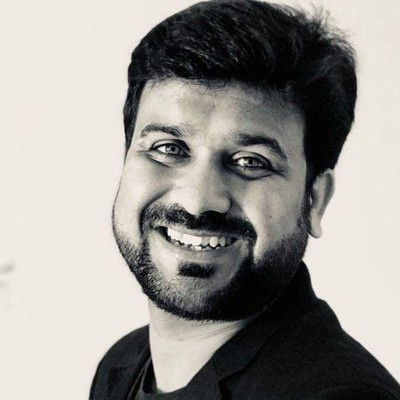
Hi, I’m Prashant Jain — a curious soul, storyteller, and content creator at heart.I’ve always been drawn to the world of entertainment, travel, sports, health & lifestyle — not just as a writer, but as someone who genuinely lives these experiences. Whether I’m binge-watching the latest OTT series, exploring offbeat spiritual destinations in India, or diving deep into wellness routines and cricket match insights, I love sharing what I discover with like-minded readers.
PopNewsBlend is my way of blending personal journeys with meaningful stories — ones that inform, inspire, and keep you ahead of the curve. Everything I write comes from real observations, hands-on experiences, and a deep passion for understanding the world around us.
Discover more from Popnewsblend
Subscribe to get the latest posts sent to your email.

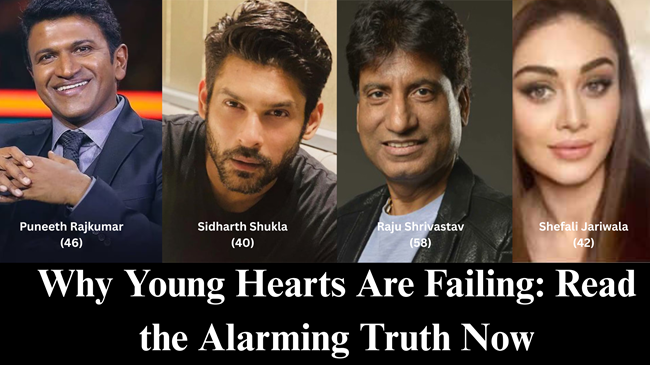



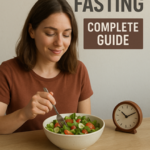
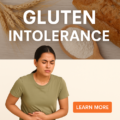

Pingback: Hidden Signs of a Heart Attack You Should Never Ignore
Can you be more specific about the content of your article? After reading it, I still have some doubts. Hope you can help me.